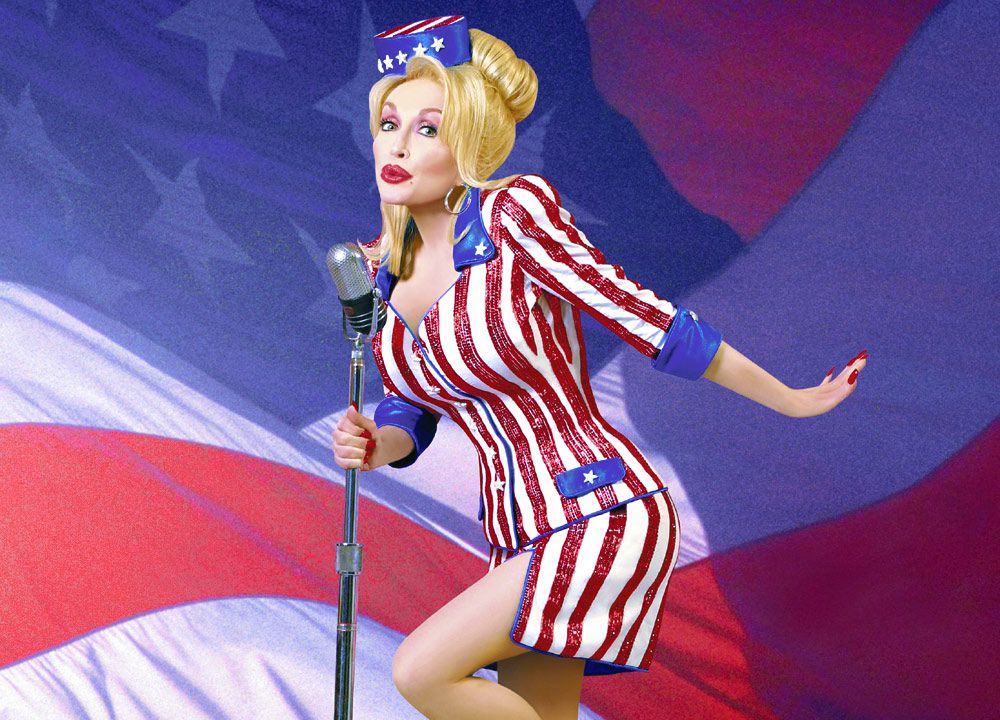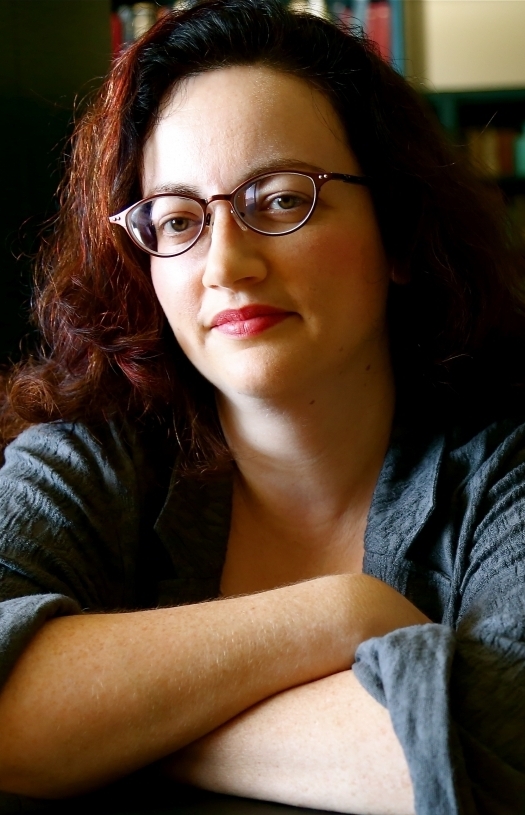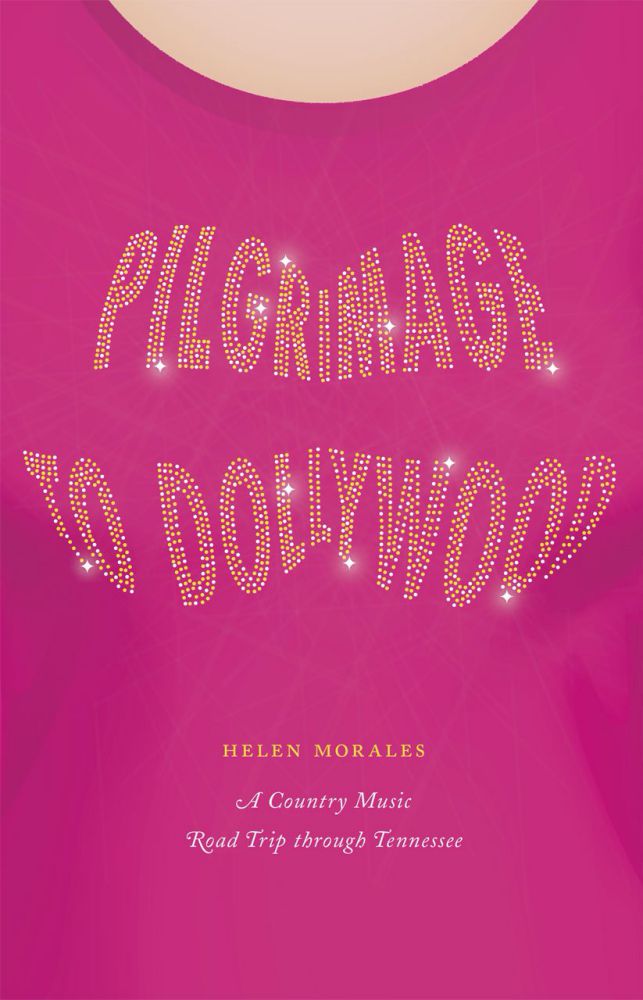
The Great Unifier


Helen Morales is an unlikely Dolly Parton aficionado. Educated at the University of Cambridge, the Argyropoulos Professor of Hellenic Studies at UC Santa Barbara was nonetheless dubbed the first “Dollyologist” in “Dolly Parton’s America,” which The New Yorker called the No. 1 podcast of 2019.
“It’s strange as a classicist,” she said. “I’m in my office trying to work out what Aeschylus meant ... and I’ll get an email or a call about Dolly Parton.”
How Morales and Parton arrived at this glittering intersection of pop culture and the tragedies of Euripides is a uniquely American story involving immigrants, country music and a road trip across Tennessee, which Morales detailed in “Pilgrimage to Dollywood” (The University of Chicago Press).
“The book was published in 2014,” she noted, “and it was really well reviewed, but it didn’t gain much traction beyond reviews.”
Enter Lynn Sacco, an associate professor of history at the University of Tennessee in Knoxville. Sacco taught an honors class, “Dolly’s America,” and included “Pilgrimage to Dollywood” in the syllabus. After the New York Times wrote about the class in 2017, Radiolab’s Jad Abumrad read the book and knew he wanted to interview Parton.
As it happened, his Lebanese-born father, Naji Abumrad, was a physician at Vanderbilt Hospital who had treated the singer in 2014 for minor injuries from a car accident. The two became friends and Jad had a pipeline to Parton. What started with a single conversation morphed into an 11-episode podcast.
“I’m featured in three of them,” Morales said, “and they call me the original Dollyologist. I think of all the plaudits one could get, that’s probably the one I’m most thrilled about. You can keep your MacArthur Awards. I’m the original Dollyologist.”
It’s easy to joke about Parton, who’s been making fun of her own appearance since she first stepped onto a stage. But she hasn’t thrived for more than 50 years on her looks, said Morales, who had one piece of advice for the Radiolab folks: treat her seriously.
In her book, Morales tells the story of how Elvis Presley wanted to record Parton’s “I Will Always Love You” in 1974. But his manager, Col. Tom Parker, demanded that she give them 50% of the publishing royalties in perpetuity.
Although she was struggling financially at the time, Parton politely refused, telling Parker she wanted the money she made from her songs to go to her family after she was gone. Parker, in turn, told her Presley wouldn’t record it.
“That was a moment where she showed herself to be really steely,” Morales said.
It was also rather astute: After Whitney Houston recorded the song for “The Bodyguard” soundtrack in 1997, Parton received more than $6 million in royalties.
“When Whitney’s version came out,” Parton said later, “I made enough money to buy Graceland.”
Yes, Parton is rich, and the buxom product of Appalachian poverty in Sevier County, Tenn. But Morales and the podcast reveal a woman of depth, intelligence, compassion and independence — even if Parton calls herself a “backwoods Barbie.”
“I think that’s what I tried to do in the book,” Morales said. “She calls her image ‘keeping her cartoon up.’ I tried to show that there’s much more to that cartoon, much more depth when it comes to songwriting and business savvy — even genius — behind that cartoon. And I think the podcast, partly because they can play the music and you can hear the interviews, it extends that even further, and that’s one reason why it’s had such a broad appeal.”
And while the podcast opened a window on Parton for its audience, Morales argues that the extraordinarily prolific songwriter has built an enduring career in part by building the sort of diverse coalition any politician would die for.
“She’s a figure that emanates positivity and love and understanding for all,” she explained. “She’s got a loyal Christian fan base. She’s got a loyal fan base in the LGBTQ community. Some of the research I did in Tennessee showed how tough, how brave that was to be so inclusive when there were many who didn’t want a theme park to have non-heterosexual families enjoying it.”
Parton’s appeal, in fact, has long crossed racial and geographical lines. Consider: When guards at South Africa’s Robben Island allowed the prisoners to choose music, a former inmate says in the podcast, Nelson Mandela chose Parton’s “Jolene.”
The connections to others and coincidences that enrich our lives often take decades to show up on our doorstep. Morales’s father, a Greek Cypriot who emigrated to southeastern England, loved American country music.
“He used to talk about country music as being sort of our music, meaning immigrant music,” she recalled.
Some 40 years and 5,500 miles later, “Pilgrimage to Dollywood” served as a bridge between the girls of Eastbourne, U.K., and a rough holler in the Great Smoky Mountains. Morales might not have intended to kick off a wave in Dolly Parton studies, but here we are.
“The book was a mixture of academic analysis, travel writing and memoir,” she said. “I think the academic analysis in that made possible the [‘Dolly’s America’] course. I’ve had a fair number of graduate students write to me saying they want to work on Dolly Parton for their cultural studies or their American studies. Sometimes we don’t know when our work has made an impact. I thought this hadn’t made much of an impact. And it took several years for it to do so.”



